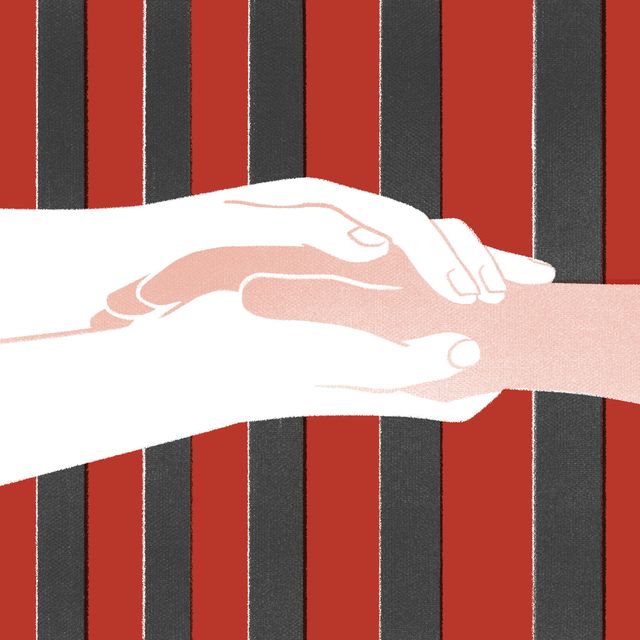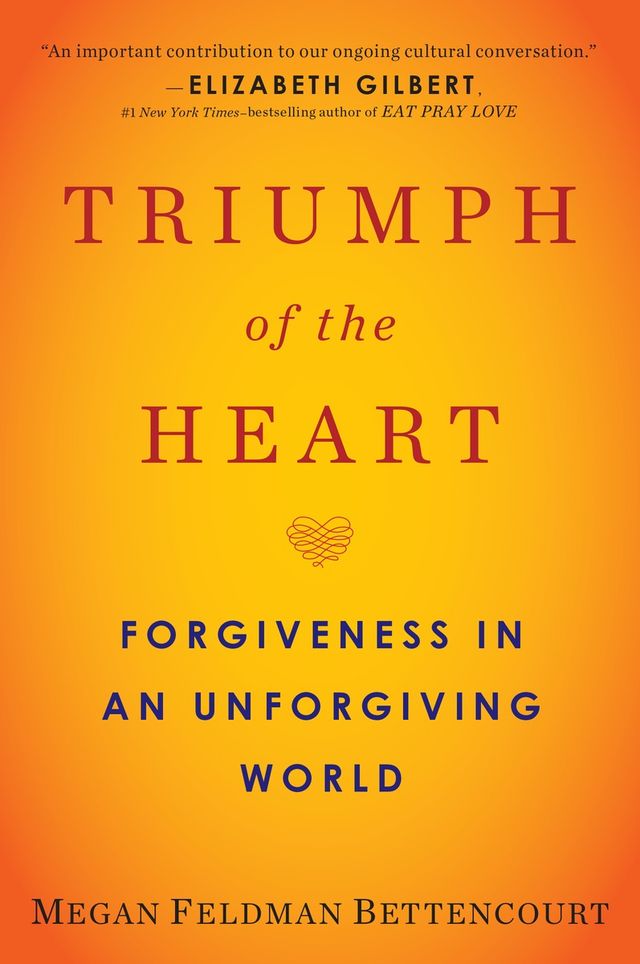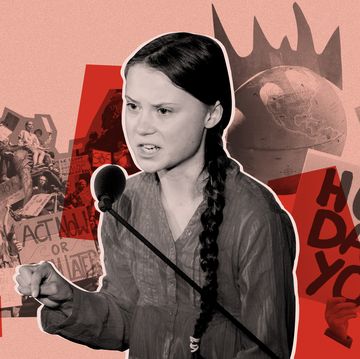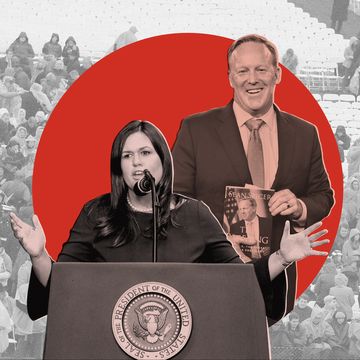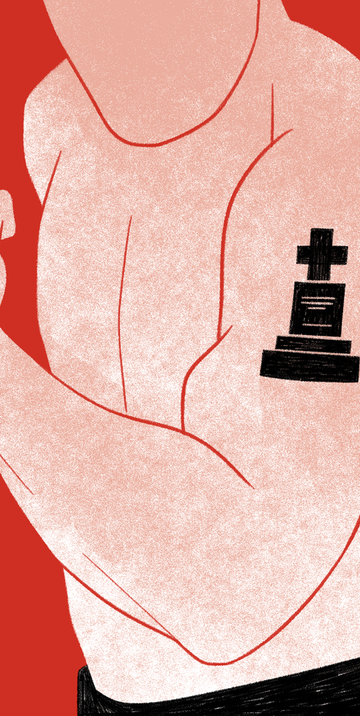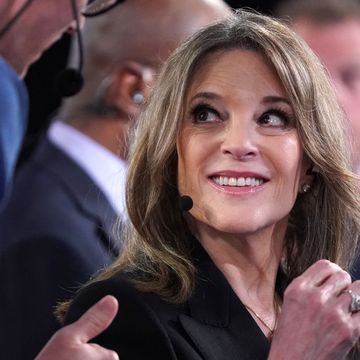Years ago, I was raped by a man I dated briefly. Knowing the bleak statistics on prosecutions of sexual assaults that take place within relationships, I opted not to report it. I declined his overtures for a second chance, and afterward, a friendship. I shared the experience with a few close friends in order to process it and let it go, and as the years passed, I rarely thought about the night he held me down against my will. I didn’t want any contact with this man, but I bore no resentment toward him, either.
Then I began researching a book about forgiveness. I interviewed people who sought and granted forgiveness after various betrayals and offenses, including sexual abuse. Some even reconciled with their abusers, with one woman going to the extraordinary length of nursing her father on his deathbed after forgiving him for years of childhood sexual abuse.
Once the book came out and I began touting the health benefits of forgiveness at talks and book signings around the country, I wondered: since I hadn’t reconciled with my rapist, did that mean that my forgiveness was incomplete?
There’s a pervasive misconception of forgiveness that confuses it with pardon and reconciliation—particularly when it concerns sexual abuse. If you forgive, this misguided thinking goes, you refrain from reporting an offender and maintain a relationship with that person. This confusion has created a minefield of musts for survivors: You must either forgive and stay silent or stay angry and press charges, and if you do forgive someone, you must be happy to have this person at Thanksgiving. What a toxic brew of nonsense.
Etymologically speaking, the word forgive has been linked to pardon (forgiving a debt, for instance), but Merriam Webster defines "forgive" as, “to give up resentment.” You can give up resentment and hold someone accountable—in private or public. You can, and in certain situations you should, forgive, yet never reestablish a relationship.
Misconceptions about forgiveness have long been manipulated to re-victimize sexual assault survivors, especially in male-dominated religious communities. Take the Mennonite community of Manitoba Colony in Bolivia. Dozens of women who reported being raped were told by local church leaders (who did double-duty as the colony’s ‘law enforcement’ officials) that in order to enter heaven, they must “forgive,” i.e. keep the abuse secret. Rachael Denhollander, the first victim to file a complaint against Larry Nassar, says she lost the support of her Christian church after she came forward in 2016.
This weaponized forgiveness also fuels women’s participation in our own oppression. It is evident in relationships dominated by domestic violence, in which women perpetually forgive and reconcile until their deaths at the hands of violent lovers. But it’s just as insidious in our ingrained reactions to widespread sexual harassment. The actress Salma Hayek wrote in the New York Times that one way she rationalized remaining silent about Harvey Weinstein’s alleged sexual harassment was by priding herself on her “capacity for forgiveness.” Hayek and other women refrained from reporting Weinstein for many reasons, of course, chiefly his power over their careers and his penchant for retaliation. Yet the fact that Hayek says she told herself she was staying silent due to a virtuous, “capacity for forgiveness,” shows how indoctrinated we have been with the idea that in order to be forgiving, we must refuse to call men out for their abuse.
The idea that forgiveness and justice are mutually exclusive is more than semantics. It robs sexual assault survivors of dignity, empowerment, and healing. To recover from trauma and change the culture that enables sexual abuse, we must be free to tell the truth, protect our safety, seek justice, and release our bitterness. Yet lumping forgiveness in with reconciliation and pardon prevents that. Once women are away from abuse, with the ability to name their perpetrator with a modicum of safety, they may believe that if they have forgiven they abdicate their right to justice.
On the other extreme, when we call out perpetrators, but never endeavor to forgive (believing it’s impossible to do so while condemning violent actions), we remain victims of our own anger. Being angry is a natural response to injustice, an important aspect of grief, and a powerful motivator for change. Yet as Maya Angelou said, "You must not be bitter... Bitterness is like cancer. It eats upon the host." The detrimental health effects of chronic anger can include higher risk of depression and anxiety, as well as high blood pressure and heart attacks. To be healthy and happy, then, we must forgive ourselves and those who hurt us. We can, and must, both demand justice and release resentment.
Patricia Steuer, one of Bill Cosby’s alleged victims, discussed this with CNN’s Anderson Cooper after Cosby’s trial. After she expressed relief and joy over Cosby’s conviction, Cooper asked, “Can you forgive something like this?” She replied, “I forgave Bill Cosby years ago—for me. When you hold onto resentment for someone like that, it’s not hurting them; it’s only hurting you.”
While researching my book, Triumph of the Heart, I interviewed several women who had forgiven perpetrators of sexual violence. Their greatest motivator for forgiveness, they told me, was their own self-preservation—their drive to not only survive but to also enjoy a quality of life that hatred would never give them. Some saw justice for their abusers, while others did not. Some reconciled with their perpetrators while others never spoke to theirs again. It is possible to forgive an unrepentant perpetrator who hasn’t faced justice, but it’s easier to forgive a perpetrator who has either apologized, served a sentence, and preferably, both. One reason it’s so important to encourage survivors to share their experiences and call out abuse is that the very act of speaking up, being heard, and getting some degree of justice—without pressure to reconcile—eases the way for forgiveness. Evolutionary psychologists have determined that societies with strong law enforcement and justice systems can foster the impulse to forgive and even reconcile, while those dominated by chaos and impunity foster resentment and revenge.
Female rage rises with every dismissed and denigrated allegation of abuse. As we behold a President (who bragged about sexual assault) dismissing allegations against his Supreme Court nominee, women’s collective outrage is deafening. It should be. Righteous anger is the stuff of progress, while bitterness is fuel for stagnation and disease.
The #MeToo movement, driven by righteous rage and demands for dignity, is an opportunity to upgrade the antiquated definition of forgiveness that deprives women of empowerment and healing. The more we view forgiveness as a process of releasing resentment, rather than an abdication of justice that implies silence or reconciliation, the better equipped we’ll be to help survivors.
As loved ones, advocates, and communities, we must first listen to victims and secure their safety. Then, we must focus on their needs before obsessing over any potential damage to perpetrators’ reputations or freedom. That means providing mental health support to process grief and recover from post-traumatic stress. It means holding perpetrators accountable, through the justice system and within the institutions where abuse has flourished. It means never pressuring survivors to forgive.
We can share the research-proven truth that relinquishing resentment is crucial for long-term health, and that it’s possible to generate neutral feelings about someone while speaking out against his actions. We can support survivors in forgiving in their own way, in their own time, without ever having to reconcile or condone.

Megan Feldman Bettencourt is the author of Triumph of the Heart: Forgiveness in an Unforgiving World, named a 2016 Book for a Better Life by the National MS Society and a Best Book of 2015 on the Science of a Meaningful Life by the UC Berkeley Greater Good Science Center. Her journalism has appeared in publications including Psychology Today, Salon, Glamour, and The San Francisco Chronicle. Visit her at meganfeldman.com.
